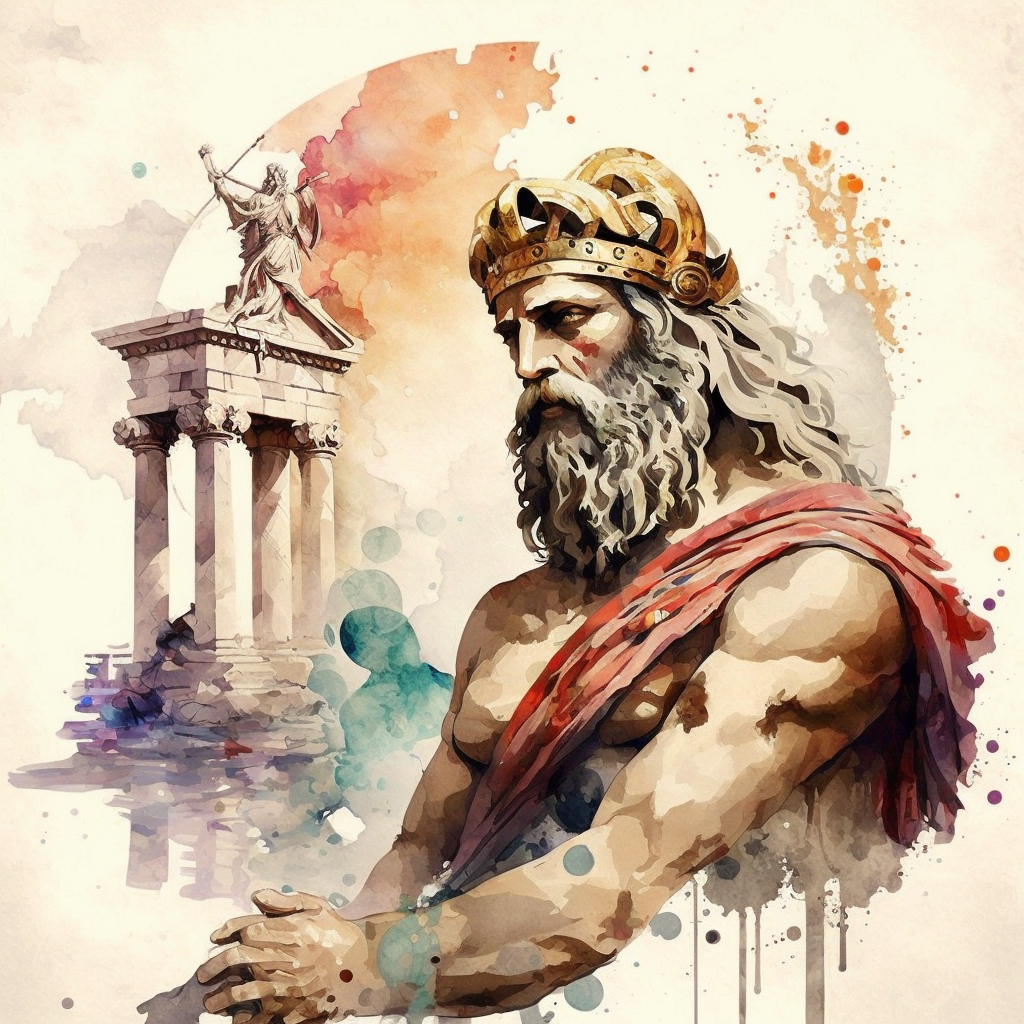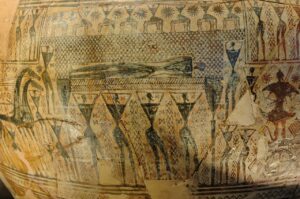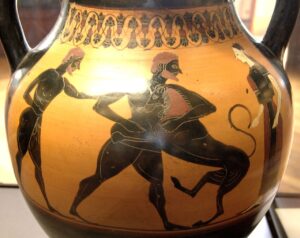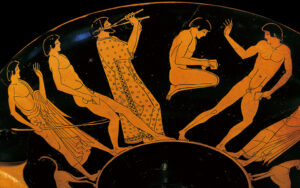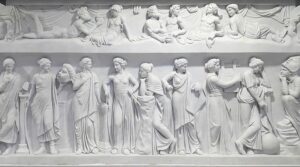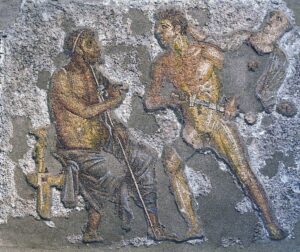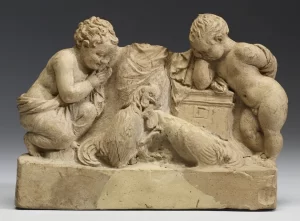Religion in ancient Greece was based on a complex system of beliefs, rituals, and practices that played a central role in ancient Greek society. The religion of ancient Greece was polytheistic, which means that the people of ancient Greece believed in many different gods and goddesses. Furthermore, these gods and goddesses of ancient Greece were believed to govern various aspects of life and the natural world.
Gods and Goddess of Ancient Greek Religion
Religion in ancient Greece centered on the belief of a wide range of gods and goddesses, each with their own specific areas of influence. The most important gods and goddesses were the twelve Olympians, who were believed to reside on Mount Olympus, the highest mountain in Greece. The Olympians were led by Zeus, the king of the gods, and included his brothers Poseidon and Hades, as well as his sister Hera, and his children Athena, Apollo, Artemis, Ares, Aphrodite, Hermes, Dionysus, and Hephaestus. Click on the links to learn more about each of the twelve Olympian gods and goddesses that were important to religion in ancient Greece.
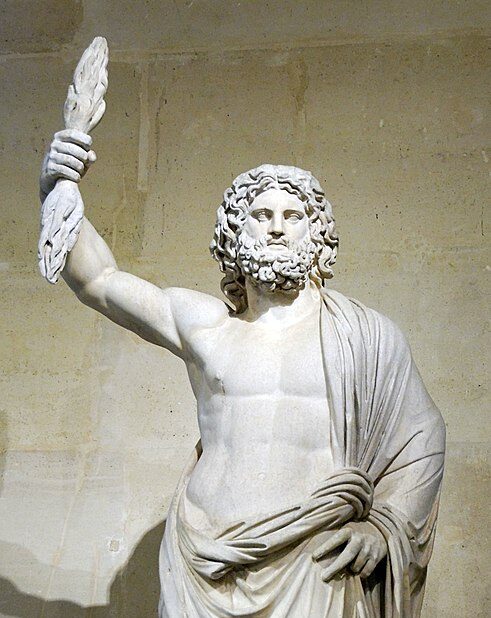
The ancient Greeks also believed in many other gods and goddesses, including the Titans, the primordial deities who preceded the Olympians, and the lesser gods and goddesses who were associated with specific aspects of life and the natural world.
The Titans were important figures in Greek mythology, as they represented the forces of nature and the primal aspects of the world. They were also associated with the creation and governance of the world and the universe. The most well-known Titans include Cronus, the leader of the Titans, who was overthrown by his son Zeus; and Prometheus, the Titan who gave fire to mankind.
Some of the most important Titans of ancient Greece were:
- Cronus – the leader of the Titans, who was overthrown by his son Zeus.
- Rhea – the wife of Cronus and the mother of Zeus, Poseidon, Hades, Hera, Demeter, and Hestia.
- Oceanus – the god of the ocean and the river that encircles the world.
- Tethys – the wife of Oceanus and the goddess of the sources of fresh water.
- Hyperion – the god of light and the father of Helios (the sun), Selene (the moon), and Eos (the dawn).
- Theia – the wife of Hyperion and the goddess of sight and shining light.
Beliefs and Practices of Religion in Ancient Greece
Religion in ancient Greece was based on a wide range of rituals and ceremonies to honor the ancient Greek gods and goddesses. These rituals included animal sacrifices, libations (pouring out a drink in honor of a god or goddess), and offerings of food and other goods. The ancient Greeks also built temples and other sacred places to honor their gods and goddesses.
The ancient Greeks also had a rich tradition of myths and stories about their gods and goddesses. These myths were used to explain the natural world and the workings of the universe, as well as to convey moral and ethical teachings.
The ancient Greeks also had a wide range of religious practices and beliefs that were specific to different regions and city-states. For example, the religion of ancient Athens was particularly focused on the worship of Athena, the goddess of wisdom and war. For instance, there were temples created in honor of Athena on the Acropolis of Athens. For instance, the Parthenon, a temple on the Acropolis of Athens was dedicated to the goddess Athena. It is considered one of the most important examples of classical Greek architecture and is known for its intricate sculptures and friezes.
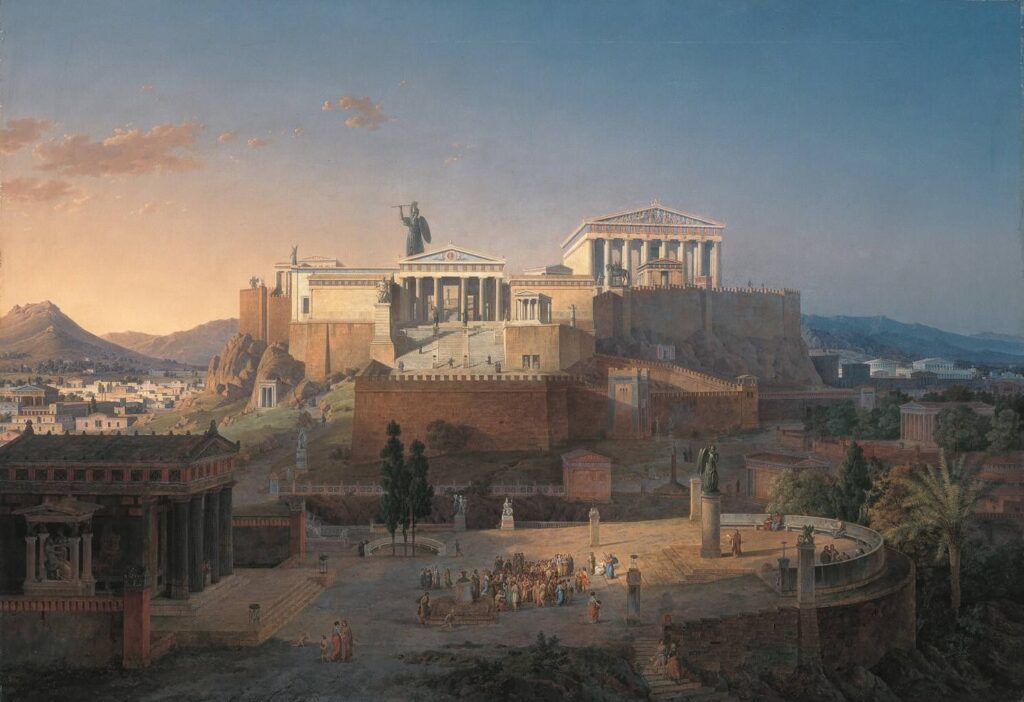
One of the most important aspects of ancient Greek religion was the belief in an afterlife. The ancient Greeks believed that the souls of the dead went to the underworld, where they were judged by the god of the underworld, Hades. The souls of the righteous were sent to the Isles of the Blessed, where they lived a life of eternal happiness, while the souls of the wicked were sent to Tartarus, where they were punished for their sins.
Summary of Ancient Greek Religion
Overall, religion in ancient Greece was deeply ingrained in their daily lives and culture, with gods and goddesses being a part of their daily life. The gods and goddesses were the key figures in their religion and were believed to have control over various aspects of life. They were honored and worshipped through festivals and sacrifices, and their stories and myths were passed down through generations.

